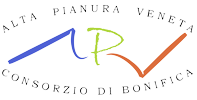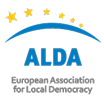Global climate change is leading to significant increase of temperature and intensification of extreme weather phenomena, with increasingly frequent heavy rainfall alternating with periods of lack of water. Strong rainfalls, floods, inundations, landslides and erosive phenomena have affected our country in a deep way in recent years and climate models tell us that these phenomena will appear in an increasingly intense way in the future. This situation is further intensified by the increasing consumption of soil and its progressive waterproofing, which compromises the effectiveness of the system of natural infiltration of water and has a negative impact on the services provided by nature (known by the term “ecosystem“). Moreover, the progressive reduction of vegetation is contributing to the deterioration of the urban microclimate, significantly increasing temperatures in urban areas, a phenomenon known as the “heat island”.
Despite this worrying situation, local administrations and communities are unprepared for such events and still unable to act to anticipate and mitigate their effects. For this reason, improving the safety and hydraulic resilience of the territory requires extensive and incisive actions of territorial and social planning, with the involvement of all the different stakeholders.
The objectives of the project
The main objective of the project is to implement a strategy for adaptation to climate change and flood risk in urban and rural areas, through the active involvement of local communities
To this end, the project aims to:
- Activate a participatory process to identify plans and actions shared by the main stakeholders for the improvement of the hydraulic safety and resilience of the territory.
- Implement Natural Water Retention Measures (NWRMs) with technical and demonstrative value, for hydraulic safety and good water resource management in urban and agricultural areas.
- Propose information and raising awareness activities to promote an environmental culture and involve individuals in reducing the risk of flooding.
- Create a regulatory framework and technical expertise conducive to the widespread deployment of NWRMs.
- Promote the dissemination of the proposed initiatives, to become a virtuous model applicable in other Italian and European municipalities.
On a more general level, BEWARE acts within the framework of European policies for adapting cities to climate change and aims to raise awareness on the objectives of the UN Agenda 2030 for Sustainable Development, in particular objectives 11, “Sustainable Cities and Municipalities”, and 13, “Combating Climate Change”.
The Partners

Municipality of Santorso
Santorso is a Municipality of Altovicentino, located on the slopes of Monte Summano, in a vast area between the Alps and the Po Valley. Despite its small size – it has about 6,000 inhabitants – the Municipality is the leader of several projects at national and European level, particularly in the social field, the enhancement of the territory and in that of environmental sustainability.
The commitment in this specific field was born in 2007 when the Administration, in collaboration with the Veneto Region and some local authorities, started the Provincial Environmental Education Laboratory. In 2014, the City Council approved the Action Plan for Sustainable Energy (www.santorsosostenibile.it) after having adopted, in 2012, the strategic vision “Santorso 2020”. The administration is strongly committed to the issues of renewable energy, with attention to the construction of paths of participation of citizens. In 2015, starting from the synergy between administration and citizenship, the Energy Desk was born, which has developed successfully in the municipal area, with important awards from the European Community (European Award for Sustainable Energy) and Legambiente (Renewable Municipalities). The Desk was later extended to a larger territory and has now become the “Municipalities for Sustainability Desk”, an inter-municipal service that sees 11 Municipalities in the area active in promoting the theme of environmental sustainability

Municipality of Marano Vicentino
Marano Vicentino (VI) is a Municipality of almost 10 thousand inhabitants of the Altovicentino, in the high plain where the streams Leogra and Timonchio flow. In 2016 it won the Virtuous Municipalities Award, promoted by the Virtuous Municipalities Association with the patronage of the Ministry of the Environment. In setting up a participatory project for a sustainable territory, the Municipality of Marano has adhered from 2014 to the “Covenant of Mayors for Climate and Energy”, committing to an “Action Plan for Sustainable Energy” (Paes), with the goal of reducing at least 20% of carbon dioxide emissions by 2020. On these issues, Marano also participates in the “Municipalities Desk for Sustainability”, promoted by the Municipality of Santorso.
Among the other projects carried out, there are the recovery of 15,000 square meters of agricultural land saved from covering with concrete; 1,000 new trees planted for the creation of a “lowland forest”, 77.5% of separate collection in 2018 – door to door and with the punctual rate of waste – with 65.1 kg of dry waste per capita per year.
Through four routes of about 1.2 km, about a hundred children now go to school with the “feet-bus”, accompanied by their grandparents, and over time is strengthening the mobility of bicycles and the exchange between different means, such as the bike and the train, enhancing the station of Marano as a cultural space. Every year the Municipality proposes various initiatives for participation and environmental awareness, such as the day of collective care of the territory, “Let’s clean Marano” and, for children, the “Bloodhound sniffs garbage”, or the cultural review ” The discipline of the earth. Landscape, men and animals”.

The Reclamation Consortium Alta Pianura Veneta
The consortium for the reclamation of the Upper Venetian Plain covers a total of 172,953 hectares in a territory that includes 96 Municipalities in the Veneto region, in whole or in part, spread over three provinces: Vicenza, Verona and Padua. The primary activity of the Consortium is to provide for the execution of the hydraulic reclamation works, the maintenance and operation of watercourses, as well as the execution of hydraulic works (integral reclamation).
In addition to all those interventions aimed at the defense and conservation of the soil, today the activity of the consortium also includes the protection of the rural space and the agricultural irrigation ecosystem and the related protection of the environment.

TESAF - Department of Territory and Agro-Forest Systems - University of Padua
The Department of Territory and Agro-Forestal Systems (TESAF) is part of the University of Padua and is characterized by modernity and multi-disciplinarity. The activity is strongly oriented towards the study, conservation, effective management and sustainable use of agricultural, forestry and environmental resources. Research and teaching are based on bases of qualitative excellence and on international, national and local collaborations in order to produce tangible and innovative results at the service of science and society. The structure of the Department reflects the multiplicity of different knowledge that characterize it, such as ecology, forestry, territorial planification, phytopathology, valuation, law and policies of the territory, the economy and agro-food policy, rural and forestry, hydrology and water resource management, geomatics, xylography and wood technology and mechanization of agriculture and forestry.

Veneto Agriculture
Veneto Agriculture – Veneto Agency for Innovation in the Primary Sector – is a body of the Veneto Region that operates in the field of policies for the agricultural, agri-food, forestry and fisheries sectors. It deals with applied research and experimentation aimed at testing and disseminating technological and organizational innovations designed to improving the competitiveness of businesses and production chains, environmental sustainability, in the agricultural, agri-food, forestry and fisheries sectors. The Agency also works for the protection of plant and animal biodiversity of agricultural, naturalistic and ichthyic interest, as well as in the management of the regional forest state property.

ALDA
ALDA, the European Association for Local Democracy is an organisation for the promotion of good governance and citizen participation at local level. Founded in 1999 on the initiative of the Congress of Local and Regional Authorities of the Council of Europe, it coordinates and supports the network of Local Democracy Agencies, autonomous non-governmental organisations registered locally which act as promoters of good governance and local self-government in the territories of the European Neighbourhood. Over the years ALDA has become a key stakeholder in the field of local democracy, good governance, active citizenship and cooperation between local authorities and civil society. Within the framework of promoting citizens’ participation at local level, ALDA works on various issues such as European integration, decentralisation, volunteering and civic initiatives, environment, human rights and economic and sustainable development. The Association has a network of 300 members including local and regional authorities and civil society associations from more than 40 different countries.
Glossary
Hydraulic Vulnerability
The ability of a territory to suffer damage as a result of calamitous events of a hydraulic nature.
Hydraulic hazard
Probability of flooding in a given area
Hydraulic risk
Potential land damage caused by a major flood event
Flooding
Temporary water supply to a normally dry location generally caused by heavy rainfall and ineffective water disposal by the drainage system
Flood
Temporary influx of water to a normally dry place generally caused by overflowing watercourses
Environmental resilience
It is the ability of a territory to absorb the damage caused by extreme events while keeping its functions and processes alive
Natural Water Retention Measures
A set of interventions – generally of small dimensions and reduced costs – and good practices for the sustainable management of rain flows and the reduction of their impact on the territory. These measures improve hydraulic resilience and safeguard water resources by increasing a territory’s water storage capacity, using natural processes such as infiltration, restoring ecosystems and aquifers.
Project Actions
Natural water retention interventions
Implementation of 7 interventions to reduce the risk of flooding and for the sustainable management of rainfall in urban and agricultural areas.
Information and awareness
Organisation of a cycle of meetings for citizens on climate change, hydraulic risk and measures for good water management.
Activation of an in-depth course and discussion on the theme of common goods.
Building regulations and territorial action plans
Activation of a participatory territorial process for the modification of local building regulations and the elaboration of the Altovicentino Mayors Adapt Strategy, an action plan for the adaptation to climate change and the improvement of the hydraulic security of the territory.
Support to citizens
Activation of an information desk on sustainable water retention, infiltration and storage measures and of a purchasing group for natural water retention measures (“Natural Water Retention Measures”).
Training for professionals
Organization of training, workshops and webinars aimed at administrators and professionals to improve knowledge on hydraulic risk and measures for natural water retention.
Conduct of a series of training meetings aimed at farmers on measures for good water management in agriculture.
Education and dissemination
Realization of didactic activities for schools and of the Master module “Communities Resilient to Hydrogeological Risk”, at the University of Padua.
Organization of a tour on hydraulic resilience for administrators, professionals, farmers, students and citizens.
Organization of the first edition of the “Festival Altovicentino Terra dell’Acqua e Comunità Resilienti”.
Networking and replicability
Creation of a network with the main stakeholders through the construction of a community of interest at European level and the organization of study visits and workshops in other European municipalities.


